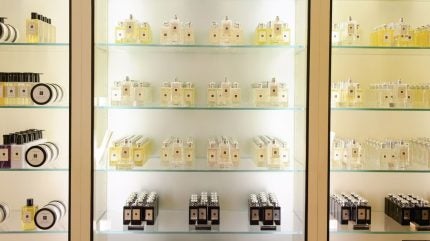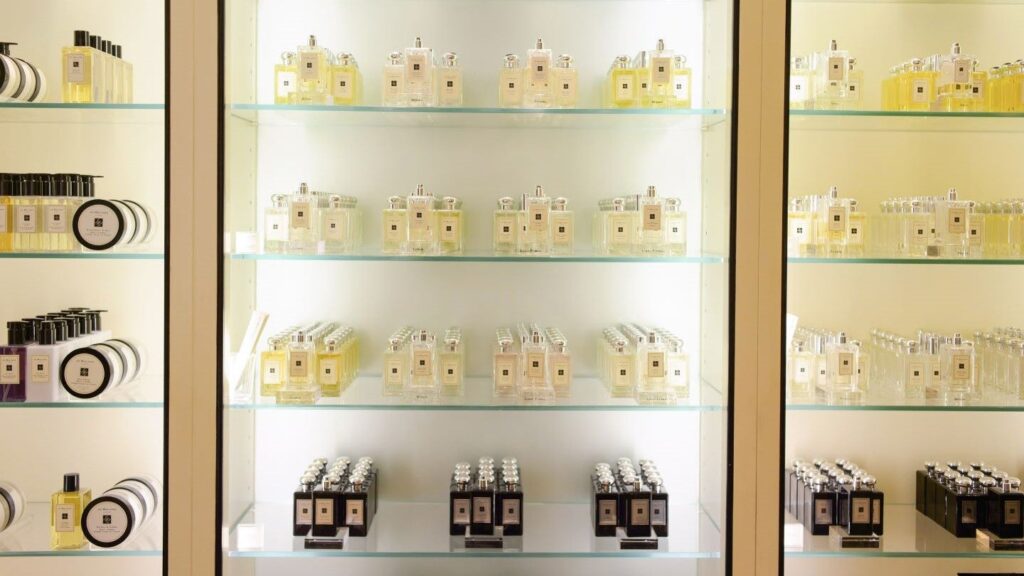
Despite the surge of e-commerce during the Covid-19 pandemic, luxury beauty brands are making a comeback in Southeast Asia’s physical retail landscape.
According to leading data and analytics company GlobalData, these brands are partnering with omnichannel retailers to provide personalised shopping experiences and capitalise on the growing demand for premium beauty products.
“The premium beauty sector in Asia’s physical retail is thriving, driven by a combination of strong consumer demand, innovative retail strategies and an increasing emphasis on personalised shopping experiences,” said Jaya Dandey, consumer analyst at GlobalData.
“The high single-digit growth rates of prestige beauty categories is notable even in the context of broader retail performance, where beauty products are often seen as high-margin categories that outperform other areas such as food sales.”
Tim Hill, key account director, SE Asia for GlobalData, noted: “Consumers are becoming more discerning, not only regarding product quality, but also in terms of the shopping experience. They like to try multiple products in person before making an informed choice, especially in the premium domain where prices can run high.”
Hill also notes that while brands are eager to enter the Southeast Asian market, they often face infrastructural challenges.
Access the most comprehensive Company Profiles
on the market, powered by GlobalData. Save hours of research. Gain competitive edge.
View profiles in store

Company Profile – free
sample
Your download email will arrive shortly
We are confident about the
unique
quality of our Company Profiles. However, we want you to make the most
beneficial
decision for your business, so we offer a free sample that you can download by
submitting the below form
By GlobalData
Country *
UK
USA
Afghanistan
Åland Islands
Albania
Algeria
American Samoa
Andorra
Angola
Anguilla
Antarctica
Antigua and Barbuda
Argentina
Armenia
Aruba
Australia
Austria
Azerbaijan
Bahamas
Bahrain
Bangladesh
Barbados
Belarus
Belgium
Belize
Benin
Bermuda
Bhutan
Bolivia
Bonaire, Sint
Eustatius
and
Saba
Bosnia and Herzegovina
Botswana
Bouvet Island
Brazil
British Indian Ocean
Territory
Brunei Darussalam
Bulgaria
Burkina Faso
Burundi
Cambodia
Cameroon
Canada
Cape Verde
Cayman Islands
Central African Republic
Chad
Chile
China
Christmas Island
Cocos Islands
Colombia
Comoros
Congo
Democratic Republic
of
the Congo
Cook Islands
Costa Rica
Côte d”Ivoire
Croatia
Cuba
Curaçao
Cyprus
Czech Republic
Denmark
Djibouti
Dominica
Dominican Republic
Ecuador
Egypt
El Salvador
Equatorial Guinea
Eritrea
Estonia
Ethiopia
Falkland Islands
Faroe Islands
Fiji
Finland
France
French Guiana
French Polynesia
French Southern
Territories
Gabon
Gambia
Georgia
Germany
Ghana
Gibraltar
Greece
Greenland
Grenada
Guadeloupe
Guam
Guatemala
Guernsey
Guinea
Guinea-Bissau
Guyana
Haiti
Heard Island and
McDonald
Islands
Holy See
Honduras
Hong Kong
Hungary
Iceland
India
Indonesia
Iran
Iraq
Ireland
Isle of Man
Israel
Italy
Jamaica
Japan
Jersey
Jordan
Kazakhstan
Kenya
Kiribati
North Korea
South Korea
Kuwait
Kyrgyzstan
Lao
Latvia
Lebanon
Lesotho
Liberia
Libyan Arab Jamahiriya
Liechtenstein
Lithuania
Luxembourg
Macao
Macedonia,
The
Former
Yugoslav Republic of
Madagascar
Malawi
Malaysia
Maldives
Mali
Malta
Marshall Islands
Martinique
Mauritania
Mauritius
Mayotte
Mexico
Micronesia
Moldova
Monaco
Mongolia
Montenegro
Montserrat
Morocco
Mozambique
Myanmar
Namibia
Nauru
Nepal
Netherlands
New Caledonia
New Zealand
Nicaragua
Niger
Nigeria
Niue
Norfolk Island
Northern Mariana Islands
Norway
Oman
Pakistan
Palau
Palestinian Territory
Panama
Papua New Guinea
Paraguay
Peru
Philippines
Pitcairn
Poland
Portugal
Puerto Rico
Qatar
Réunion
Romania
Russian Federation
Rwanda
Saint
Helena,
Ascension and Tristan da Cunha
Saint Kitts and Nevis
Saint Lucia
Saint Pierre and Miquelon
Saint Vincent and
The
Grenadines
Samoa
San Marino
Sao Tome and Principe
Saudi Arabia
Senegal
Serbia
Seychelles
Sierra Leone
Singapore
Slovakia
Slovenia
Solomon Islands
Somalia
South Africa
South
Georgia
and The South
Sandwich Islands
Spain
Sri Lanka
Sudan
Suriname
Svalbard and Jan Mayen
Swaziland
Sweden
Switzerland
Syrian Arab Republic
Taiwan
Tajikistan
Tanzania
Thailand
Timor-Leste
Togo
Tokelau
Tonga
Trinidad and Tobago
Tunisia
Turkey
Turkmenistan
Turks and Caicos Islands
Tuvalu
Uganda
Ukraine
United Arab Emirates
US Minor Outlying Islands
Uruguay
Uzbekistan
Vanuatu
Venezuela
Vietnam
British Virgin Islands
US Virgin Islands
Wallis and Futuna
Western Sahara
Yemen
Zambia
Zimbabwe
Kosovo
Industry *
Academia & Education
Aerospace, Defense &
Security
Agriculture
Asset Management
Automotive
Banking & Payments
Chemicals
Construction
Consumer
Foodservice
Government, trade bodies
and NGOs
Health & Fitness
Hospitals & Healthcare
HR, Staffing &
Recruitment
Insurance
Investment Banking
Legal Services
Management Consulting
Marketing & Advertising
Media & Publishing
Medical Devices
Mining
Oil & Gas
Packaging
Pharmaceuticals
Power & Utilities
Private Equity
Real Estate
Retail
Sport
Technology
Telecom
Transportation &
Logistics
Travel, Tourism &
Hospitality
Venture Capital
Tick here to opt out of curated industry news, reports, and event updates from Retail Insight Network.
Submit and
download
Visit our Privacy Policy for more information about our services, how we may use, process and share your personal data, including information of your rights in respect of your personal data and how you can unsubscribe from future marketing communications. Our services are intended for corporate subscribers and you warrant that the email address submitted is your corporate email address.
“A key strategy to overcome this is to partner with omnichannel players such as beauty e-commerce giants, which are increasingly moving into the physical retail space,” he advises.
Southeast Asia’s burgeoning upper middle class is driving the demand for luxury beauty products.
GlobalData’s 2024 second quarter (Q2) consumer survey found that 34% of respondents in the region believe high-quality ingredients are worth the premium price.
Luxasia, a leading beauty and luxury network, has been instrumental in helping brands enter the Southeast Asian market. It recently launched escentials, an omni-retail concept for luxury fragrances, in Vietnam, while SK-II has opened a unique concept store in Malaysia.
“By returning to the essentials of the beauty industry — where sensory experiences are paramount — brands can cultivate customer loyalty in a competitive market,” concludes Dandey.
“As the premium beauty sector evolves, embracing omnichannel strategies and personalising experiences will not only ensure success but also foster enduring relationships with discerning consumers, shaping a vibrant future for beauty retail.”




